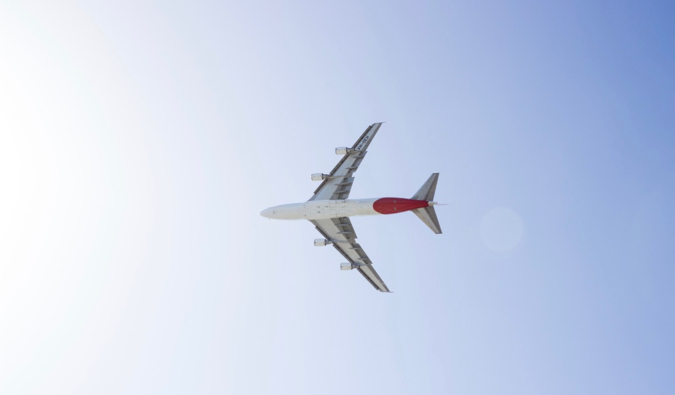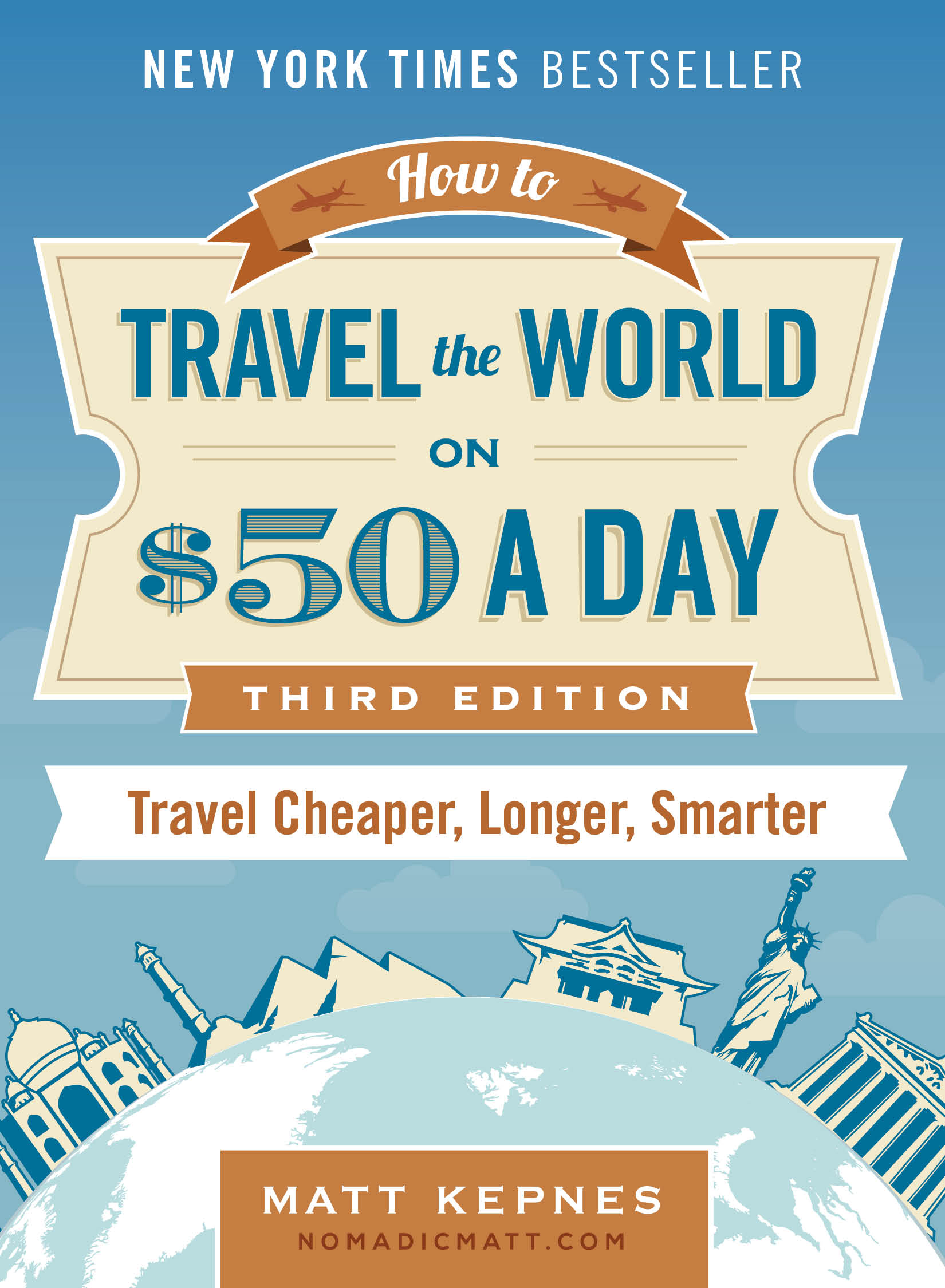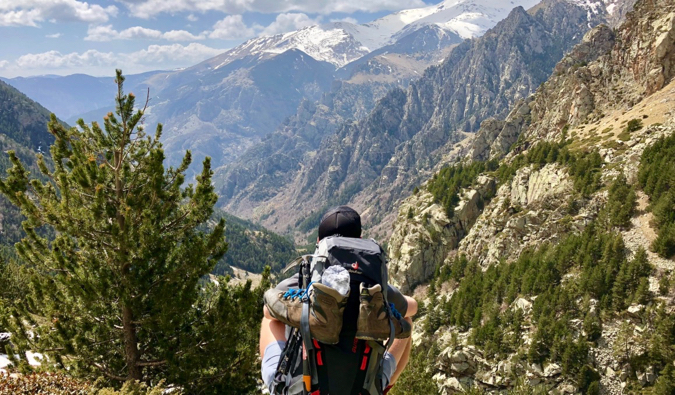
Posted: 8/29/19 | August 29th, 2019
While most budget travelers are content with a standard travel insurance package, today I wanted to talk about one specific aspect that I get asked about a lot: buying extra medical evacuation insurance.
When I first started roaming the world, I assumed that standard travel insurance would cover the cost of getting back home should I get injured abroad. Isn’t that what their “medical evacuation” coverage does?
I was shocked to discover that, more often than not, that isn’t the case.
Turns out, just because you get injured and require medical transportation doesn’t mean you get sent home.
If you read the fine print, most travel insurance companies only cover your medical transport to the “best” medical facility near where you are. This is what they call the “nearest acceptable facility.”
They decide where you go, not you.
They decide what the best facility is.
They decide what is suitable.
And once your travel insurance company sends you to a hospital, they have fulfilled their obligation to you. That means that if you’re not sent home, you could be liable to then cover the cost of getting home — which can be a lot of money.
Now, this is not to say that “regular” travel insurance is bad. It just means that people think it covers a lot more than it does and are often upset when they find out otherwise. I mean, I love travel insurance (I never leave home without it), but it’s important to know its limitations. Always read the fine print!
This is where comprehensive medical evacuation insurance can come in handy in addition to your existing travel insurance plan.
What is Medical Evacuation Insurance?
First, let’s get one thing clear: Medical evacuation insurance is not the exact same thing as travel insurance (and vice versa).
Of course, travel insurance generally includes medical evacuation insurance, but travel insurance is specifically designed to protect travelers from financial loss in the event of trip interruptions and cancelations, as well as injuries while abroad.
Cut yourself on a rock while hiking? Travel insurance will help.
Baggage lost or delayed after a flight? Travel insurance will help.
Someone pickpocket your phone? Travel insurance will help.
For most travel and medical emergencies, travel insurance will suffice.
But where it often falls short is when you need to be repatriated.
Most travel insurance plans do include decent coverage for medical evacuation — but they only take you to the nearest facility that can handle your emergency. This means:
- No guarantee of going home
- No guarantee of going to the absolute best medical facility to assist you
- No guarantee of someone on the ground to walk you through the process — you’re usually left to handle all of that on your own.
And for some people, that’s not good enough.
Why is Medical Evacuation Insurance So Important?
When I was stabbed in Colombia, I went to a local hospital. I was on my own, left to navigate the process with what little broken Spanish I knew. While I received basic medical care, it was not exactly the best in the world. I flew back to the US shortly after that to get the care I needed.
I was lucky that I didn’t require surgery and that I was able to handle the situation on my own. I didn’t necessarily need medical evacuation insurance for that incident.
But not everyone will be that lucky. Earthquakes, monsoons, hurricanes, floods, and fires do happen — and the list goes on.
Each and every year, 10 million travelers are hospitalized abroad — with over two million requiring medical transportation!
And should you need to be evacuated due to an injury, weather event, or political crisis, you definitely don’t want to be stuck with a pricey repatriation bill. After all, evacuation and transportation aren’t cheap. Costs for a medical evacuation or medical transfer can range from $30,000 to upwards of $200,000.
Yes, you read that right: $200,000!
Unless you have that kind of money lying around, you’ll want to make sure the insurance that you buy covers you for medical evacuation, transportation, transfers, and repatriation. You don’t want to be stranded at a foreign medical facility — especially if that facility doesn’t provide the degree of care that you need.
While these sorts of emergencies are rare, it’s much better to pay a small fee now than to risk going bankrupt because of an unexpected injury. Because $200,000 is a LOT of money!
Just as important as the financial argument for medical evacuation insurance is the fact that having comprehensive coverage gives you peace of mind. You and your loved ones can relax, knowing that, should the worst happen, you have a company there that is ready and able to help you get through it. The last thing you want on your vacation is to be fretting about the fine print on your insurance policy.
Over the past 10 years, I’ve had to deal with all sorts of hiccups on the road, from minor inconveniences, like a broken camera and lost baggage, to more serious situations, like when I burst my eardrum.
Take it from me: peace of mind is worth the price.
That’s why it’s important to be prepared.
That’s why more and more travelers are joining membership programs for comprehensive medical evacuation insurance.
Our Recommended Company
Medjet is a membership program that offers comprehensive medical transportation services all around the globe. It has 50 dispatch stations worldwide, with access to over 250 air ambulances. That means that as long you’re not in a warzone or country prohibited to travel by the US State Department, you will be able to receive the medical transport coverage and evacuation services that you need.
Medjet focuses solely on medical evacuation coverage, making it the go-to company for travelers concerned about medical evacuation and repatriation. All the travel pros I know use it.
Where most insurance companies will just take you to the nearest medical facility, Medjet will make sure you get home.
Additionally, Medjet will:
- Allow you to choose what hospital or medical facility you want to go to.
- Arrange medical transfer (regardless of medical necessity).
- Provide service both within the US and abroad.
- Initiate a security response and evacuation even if there is no government warning to do so.
However, it is also extremely affordable — I’m still a budget traveler after all! Medjet offers both short-term and annual plans. An annual membership can cost as little as $295 USD per year, which is amazing value if you’re an avid traveler.
If you’re looking for coverage that goes above and beyond what most companies offer, you’ll want to consider Medjet — especially if you’re concerned about the cost of a medical evacuation.
It’s also the perfect choice for anyone looking to do adventurous activities or travelers who are heading into a region where extreme weather events (such as hurricanes or floods), fires, or earthquakes are common.
Nobody likes to imagine something going wrong on their trip. But accidents and emergencies do happen. Make sure you have the evacuation insurance coverage you need on your next trip. You won’t regret it!
Book Your Trip: Logistical Tips and Tricks
Book Your Flight
Find a cheap flight by using Skyscanner or Momondo. They are my two favorite search engines because they search websites and airlines around the globe so you always know no stone is left unturned.
Book Your Accommodation
You can book your hostel with Hostelworld as they have the largest inventory. If you want to stay somewhere other than a hostel, use Booking.com as they consistently return the cheapest rates for guesthouses and cheap hotels. I use them all the time.
Don’t Forget Travel Insurance
Travel insurance will protect you against illness, injury, theft, and cancellations. It’s comprehensive protection in case anything goes wrong. I never go on a trip without it as I’ve had to use it many times in the past. I’ve been using World Nomads for ten years. My favorite companies that offer the best service and value are:
- World Nomads (for everyone below 70)
- Insure My Trip (for those over 70)
Looking for the best companies to save money with?
Check out my resource page for the best companies to use when you travel! I list all the ones I use to save money when I travel – and that will save you time and money too!
The post Do You Need Medical Evacuation Insurance? appeared first on Nomadic Matt's Travel Site.








 I’ve been using
I’ve been using 




